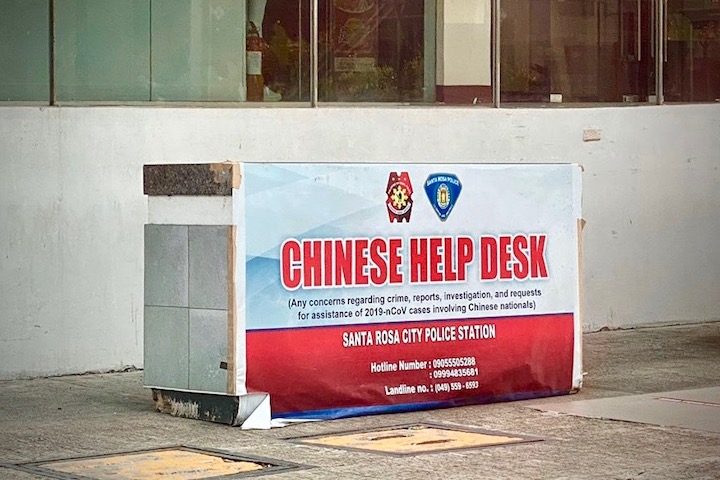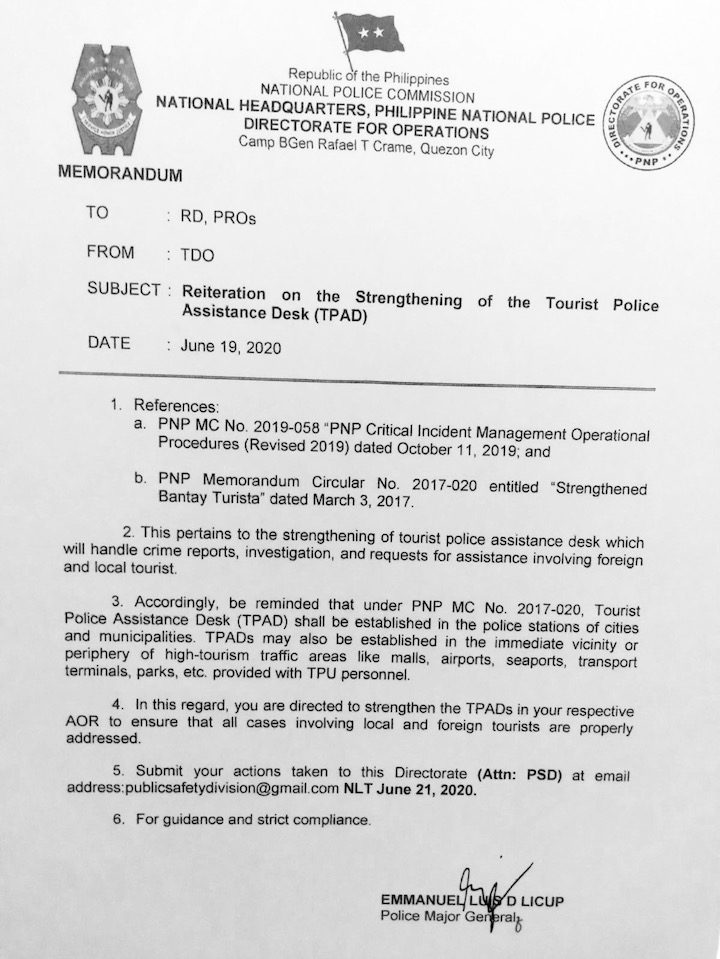SUMMARY
This is AI generated summarization, which may have errors. For context, always refer to the full article.

MANILA, Philippines – After facing criticism, the Philippine National Police (PNP) scrapped its Chinese help desks, Rappler learned.
In separate interviews, two police officials told Rappler the PNP command decided to take down the Chinese help desks after the public did not take them well. They will instead be converted into tourist assistance desks, which would cater to all tourists, regardless of nationality.
The decision was formalized through a memorandum signed by PNP Director for Operations Major General Emmanuel Licup on June 19, and obtained by Rappler.
“Be reminded that under PNP MC (memorandum circular) No. 2017-020, Tourist Police Assistance Desk shall be established in the police stations of cities and municipalities,” the memorandum read.
While phrased as a reminder, the memorandum effectively ordered police stations to prepare the tourist desks, which have mostly been in place only in police stations of cities and municipalities abundant with tourists.

How did it start? PNP chief General Archie Gamboa first floated the idea of having Chinese help desks in police stations in January 2020, citing crimes involving and victimizing Chinese nationals in the Philippines.
In a text message to Rappler, PNP spokesman Brigadier General Bernard Banac said the help desks were a response to the Chinese embassy requesting the PNP to focus on these crimes “early this year.” According to data from the PNP-Anti Kidnapping Group (AKG) alone, the number of kidnapped Chinese has risen by 71% from 2018 to 2019.
Thousands of Chinese workers have flown to the Philippines amid the rise of online gambling operations, the influx of infrastructure projects run by Chinese businessmen who hire only Chinese laborers, and the warming of ties between Manila and Beijing under the Duterte administration.
According to one source, the PNP decided to turn the desks back to tourist assistance desks, after realizing that other groups of foreigners from countries aside from China needed special help too, like Koreans.
What now? With the pandemic halting almost all travel, the PNP has ordered its cops in Chinese and tourist help desks to deploy as front liners instead. It is unclear whether the desks will be manned soon, as the government still struggles with balancing the prevention of virus spread and the reinvigoration of a suffering economy.
“All these help desks soon became irrelevant and were subsequently repurposed when the country was placed under public health emergency and the PNP started to implement the enhanced community quarantine on March 17,” Banac said.
Still, the PNP’s Chinese help desks stay in the PNP-AKG. They set up theirs in early January as they are the unit that faces most of the sensational cases involving Chinese nationals: kidnapping and extortion.
The PNP-AKG’s Chinese desk comprises of two Chinese police officers assisting AKG agents to accept walk-in complaints from Chinese nationals. They continue to focus on solving these crimes even under the pandemic. – Rappler.com
Add a comment
How does this make you feel?
There are no comments yet. Add your comment to start the conversation.